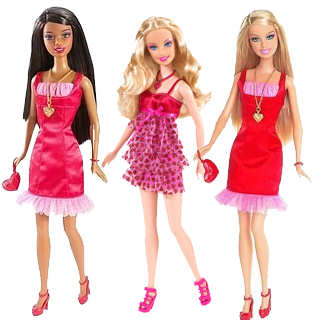I visited the United Nations Educational, Scientific and Cultural Organization site and was delighted to see that the areas of education regarding quality, access, and investment are areas being discussed all over the world. We as educators know these issues are not isolated to one country or region; instead, they are issues that affect the field of early education worldwide. After exploring the sight, there are three issues discussed that directly relate to my professional goals of advocating for best practice and access to early education for all children.
Currently, I support pre-k and pre-school teachers in areas of instruction and best practice within their classroom. So often, I have encountered teachers that depend strictly on the curriculum that they forget or ignore best practice. Best practice should be present whether there is a set curriculum or not however, many teachers depend on the curriculum to create routines, manage behavior, and foster positive classroom climate. Some of us, speaking from experience, have become lazy and dependent, yet we wonder why our children are all over the place, why they do not participate in engaged play, and why nothing instructional can be accomplished during the day. The policy brief from September 2004 is focused on curriculum in early care and education. Within the brief, it states the pros of an established curriculum: common approach to pedagogy, identification of specific areas to be taught, establishes a standard level of quality. However, what is also just as important is that ECE should be tailored to meet the child at their individual level of social emotional and cognitive development and should be directed by the child. Because of this, an established set curriculum may not be the best option for early childhood educators, instead the identification of specific guidelines or framework.
The second insight which gave me hope was reading about Brazil’s mandatory education fund for early education. The fund entitled, Fund for the Development of Primary Education and Teacher Development (FUNDEF), is comprised of money from state, local, and municipalities’ budgets. In 2000, this fund increased early enrollment to 96.4% and has allowed access to early education from ostracized populations. Due to the success of FUNDEF, policy makers are drafting a bill which would mandate educational funding for children ages 0-6. A statement made by Severiano Alves, a member of the Brazilian congress, summarizes how we all, especially law and policy makers should view early education “ignoring or belittling the problem of early childhood education, to me, is a serious mistake. Imagine a primary school classroom with children from rich families who have gone through private pre-schools and are well prepared for learning, and those from poor families who have little idea about learning, let alone having any developmental base to begin learning. Imagine the kinds of problems this situation can create for the teacher, for the children themselves, and eventually for the entire society. Instead of working on bills to remedy problems, I would prefer working on a preventive, more economical and effective, measure – investment in the early periods.”
Aside from funding, quality is also an important component when discussing access. In New Zealand, home based services are offered for families of children aged birth to five. Within this program, homes are clustered and managed by coordinator. The coordinator places children in approved homes for a specific amount of hours per week. The program, managed by the New Zealand Dept. of Education, provides specific funding per child for each home based program. Additionally, each home based program is monitored by the government and must stay in accordance with the Education Order. This program services a range of families, which has increased in population due to an increase in mothers working outside of the home.
From the three policies of focusing on improvement for early care of countries from all over the world, I have faith that one day this country of the United States, will follow suit and not just recognize the importance of early care but put their thoughts into actions.
Resources



 He is my right hand. We have known each other for 11 years but have been very close for 6. He helps me to see things differently and challenges me to be better, especially in regards to my relationship with my significant other. With Reggie, I also learned the value of truth. But more importantly, I learned that real friends accept you for you and not for what you can do, will do, or should do.
He is my right hand. We have known each other for 11 years but have been very close for 6. He helps me to see things differently and challenges me to be better, especially in regards to my relationship with my significant other. With Reggie, I also learned the value of truth. But more importantly, I learned that real friends accept you for you and not for what you can do, will do, or should do.  Currently I am in a relationship with a great man, Kullen. Kullen and I have been together for almost 4 years. This is the most difficult partnership I have ever had. Although we are in a relationship we are also in a partnership as we both help to successfully raise a child and run a home. Communication is the biggest challenge in this partnership as it took, and it still taking, us a long time to get it. We found that we have to work hard to ensure the other partner is digesting the information in the meaning we intended. I have learned the power behind my tone of voice and I am learning to have better control with it. Within this parentership there is a lot of compromise and sacrifice which at times is difficult. The difference between friendships and partnerships is the degree of compromise and Scarface. Kullen and I are working toward forever goals and although my friends and I will always be forever, the work to maintain each relationship is different.
Currently I am in a relationship with a great man, Kullen. Kullen and I have been together for almost 4 years. This is the most difficult partnership I have ever had. Although we are in a relationship we are also in a partnership as we both help to successfully raise a child and run a home. Communication is the biggest challenge in this partnership as it took, and it still taking, us a long time to get it. We found that we have to work hard to ensure the other partner is digesting the information in the meaning we intended. I have learned the power behind my tone of voice and I am learning to have better control with it. Within this parentership there is a lot of compromise and sacrifice which at times is difficult. The difference between friendships and partnerships is the degree of compromise and Scarface. Kullen and I are working toward forever goals and although my friends and I will always be forever, the work to maintain each relationship is different.  . I have learned through all of these relationships that it takes two for a relationship to flourish and survive and it requires work. Within my relationships, I have learned the importance of self reflection and the power of honesty and real love. My friendships and relationships all challenge me to be better and advocate for me. Having someone always in your corner, supporting you, cheering you on, and just being their is an indescribable feeling. Just as important it is for adults to have that person, whether family member or other, children also need that person, and sometimes that person is the teacher. ECE professional should understand the value of creating relationships with young children as it helps to foster positive self image and creates an environment for trust.
. I have learned through all of these relationships that it takes two for a relationship to flourish and survive and it requires work. Within my relationships, I have learned the importance of self reflection and the power of honesty and real love. My friendships and relationships all challenge me to be better and advocate for me. Having someone always in your corner, supporting you, cheering you on, and just being their is an indescribable feeling. Just as important it is for adults to have that person, whether family member or other, children also need that person, and sometimes that person is the teacher. ECE professional should understand the value of creating relationships with young children as it helps to foster positive self image and creates an environment for trust.